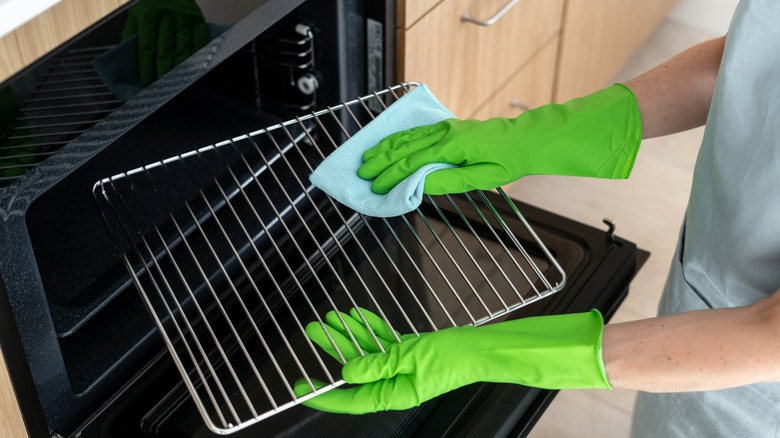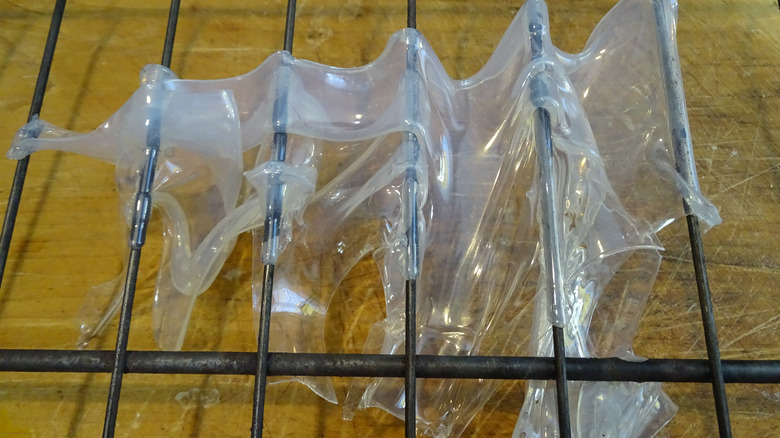How To Clean Melted Plastic Out Of Your Oven
When Carrie Bradshaw revealed that she stored her Manolo Blahniks in the oven on "Sex and the City," she inspired a train of thought that had never occurred to some people before: When kitchen space is tight, use the oven for extra storage. But because the items most people keep in the oven are likely more mundane than $1,000 shoes (i.e., snacks, plastic-wrapped baked goods, extra kitchen utensils, etc.), it can be easy to forget what, exactly, is inside.
If you've made the mistake of turning on the oven before removing its not-so-heat-safe contents, you might be left with a mess of melted plastic on your oven rack. Because melted plastic can release gases like benzene, dioxins, and toluene into the air — which can be damaging to the respiratory and nervous systems, according to the National Library of Medicine — it's imperative that the plastic is removed before the oven is turned on again. As such, you might want to avoid using the oven's self-cleaning mechanism, which utilizes extremely high temperatures to reduce stuck-on food to ash. Not only can doing so fill your house with potentially harmful fumes, but it also could present a fire hazard.
Give melted plastic an ice bath
To avoid dangerous fumes from a self-cleaning oven, you might want to clean the plastic off the old-fashioned way. To start, just pop any plastic-coated racks into the freezer. When plastic is exposed to cooler temperatures, its polymers constrict, making the plastic brittle and, thus, easier to remove.
If the melted plastic is adhered to interior parts of the oven, such as the bottom or heating element, a bag of ice, ice packs, or bags of frozen fruits and veggies can be placed on the affected areas and left for upwards of 30 minutes. Once the plastic is properly chilled, a scraping tool can be used to gently slough it off. Be sure to start at the edges of the melted plastic rather than the middle to avoid damaging your oven.
No matter how much elbow grease you put behind the scraping tool, you might not be able to remove every bit of plastic. Once the majority is removed, though, a paste made from baking soda and water can be applied to loosen leftover bits; alternatively, steel wool is useful for sloughing off any stubborn stragglers. Once the hard part is over, you can give your oven a regular cleaning using a mixture of soap and water or your favorite oven-cleaning solution.

